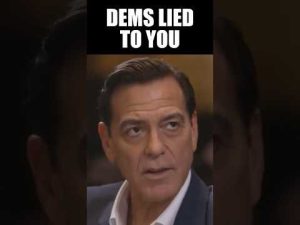**Title: Todd Nettleton’s Mission and Trade Talks: A Look into America’s Global Position**
In a world full of challenges, not all heroes wear capes. Some, like Todd Nettleton, wear the mantle of compassion and courage, risking their lives to bring attention to the perilous plight of Christians facing persecution worldwide. For over 20 years, Todd has dedicated himself to this crucial cause through his work with The Voice of the Martyrs. He’s not just a man on a mission; he’s also an author, having recently penned *Faith is Forbidden*, a powerful account that details his experiences and travels. Listeners of a popular conservative news channel were given the chance to obtain a free copy of this remarkable book, reflecting the rising interest in Todd’s work.
Meanwhile, discussions around U.S. trade policies have become quite turbulent, resembling a frothy sea during a storm. A political novice recently shared his thoughts about trade with a couple of seasoned commentators, Charlie and Aiden. His inquiry about President Trump’s tariffs ignited a more extensive dialogue about America’s reliance on foreign imports and its impact on domestic production. As the young man pointed out, many essential products, from semiconductors to avocados, flow from countries like Canada and Mexico, while a hefty chunk of pharmaceuticals stems from China – proving that not all supply chains are as reliable as a squirrel hoarding acorns for winter.
The commentators emphasized a fundamental issue at hand: America’s dependence on Chinese imports. Tariffs, they argued, should be primarily directed at China to mitigate this reliance. This was especially relevant given that China holds the key to valuable resources such as rare earth minerals and, believe it or not, vitamin C! The latter is essential for our survival, and the fact that China controls this market causes quite a stir among those who value national sovereignty and security.
The guests also pointed to exciting developments in the United States economy, highlighting significant investments from companies like Toyota, Hyundai, and Nvidia. With billions flooding into American infrastructure, it appears that Todd’s kind of heroism—a commitment to putting people over politics—may also extend to economic growth and industrial productivity. These shifts suggest that perhaps America’s manufacturing jobs, once dwindled down to a scarce commodity, may see a resurgence on the horizon.
However, not everything is smooth sailing on the tariff front. The ongoing pauses and reconsiderations on some tariffs have left some scratching their heads. Why can’t we just charge ahead with our plans? The commentators explained that this was part of a strategic endeavor to bring other nations, like Vietnam and Japan, to the negotiating table. The notion here is that these tariffs serve as a bargaining chip—like a kid trading snacks at lunch rather than a rigid rule. By applying pressure through tariffs, it shows these countries that America is serious about reshaping global trade norms.
In summary, as Todd Nettleton shines light on the profound struggles faced by Christians worldwide through his writing, America is grappling with its own challenges in the arena of global trade. The trade talks illustrate a nuanced approach that balances economic strategy with national interests, all while aiming to protect American workers and industry. One thing is for sure: Todd’s journey of faith and the ongoing trade discussions underscore a vibrant, dynamic interaction between moral responsibility and economic policy. Who knew following the news could be both enlightening and a bit of a rollercoaster? Buckle up, folks—it’s going to be an exciting ride!







